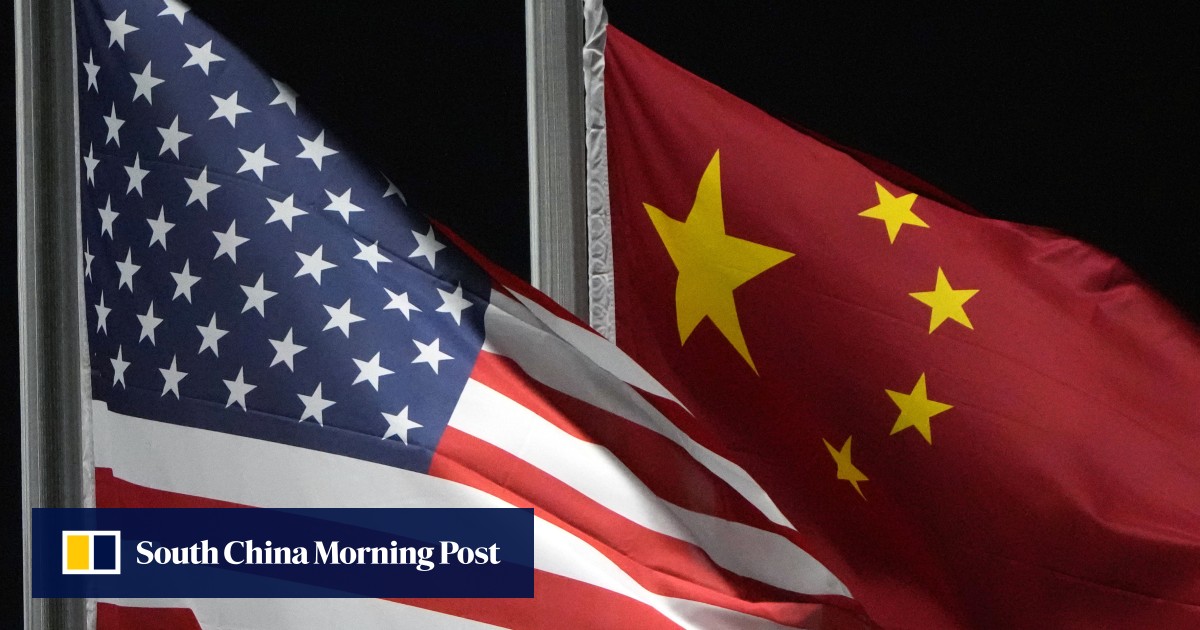
For example, the US-China Economic and Security Review Commission – a US government advisory body – said in a report published this year that China’s “core objective appears to be the degradation of US-led alliances and partnerships under the guise of a set of principles that are full of platitudes empty on substantive steps for contributing to global peace”.
“China is the only country with both the intent to reshape the international order and increasing economic, diplomatic, military and technological power to do so,” Waters said. “Beijing’s blueprint would move us away from the universal values that have sustained so much of the world’s progress over the past 75 years.”
Waters’ comment was similar to those used by many officials in US President Joe Biden’s administration as a rationale for efforts to counter Beijing’s influence beyond its borders, and was included in a National Security Strategy report published last year.
Waters denied that the principles of the global order were “Western constructs”, arguing that the UN Charter and the Declaration of Human Rights were common aspirations globally.
The way to stop the advance of Chinese attempts to revise it, he explained, is to modernise these principles so that they reflect “the interests, values and hopes of all nations, big and small, from every region, every part of the globe”.
“We want to make sure that the rules-based international order can meet not just today’s challenges, but also the ones that will face in the future … But that outcome is not in any way guaranteed, because the foundations of this order are under serious and sustained challenge,” he said.
Jonathan Fulton, a non-resident senior fellow at the Atlantic Council and one of the report’s co-authors, pointed out that the West has paid little attention to Chinese proposals such as the Global Security Initiative, and warned that the GSI will become one of the focal points of China’s agenda on the international stage.
Titled “How Beijing’s newest global initiatives seek to remake the world order”, the Atlantic Council document analyses Chinese initiatives to “create a favourable external environment” for China’s sovereignty, security and development interests.
According to David Shullman, senior director of Atlantic Council’s Global China Hub, the report aims to provide advice on how US policymakers should deal with Beijing’s attempts to “steer and ultimately usurp the international dialogue on the global development agenda”.
China’s security and development initiatives, Fulton said, resonated with developing countries that consider the international order led by the United States and Europe as incapable of responding to endemic problems in the Global South, which refers to countries mostly in Africa and Latin America.
“It is really important that people in the West, especially in the US, understand that China looks differently depending on your vantage point. People [in the Global South] don’t see China as a threat the same way people in the US do; they often see it as an opportunity. And in some cases, they see it as a model,” he said.
Michael Schuman, fellow of the Atlantic Council’s Global China Hub and one of the report’s authors, said proposals such as the GSI and GDI were still deliberately “undercooked” and “vague”.
But he predicted that China would continue to expand the initiatives and present them not only as an alternative to global governance, but also as a better solution to the world’s problems.
“I think Washington and its allies have to step up their game and strengthen the existing global institutions so as to promote the benefits of the current rules-based global order much more intensively and as a way of combating China’s efforts,” Schuman said.


